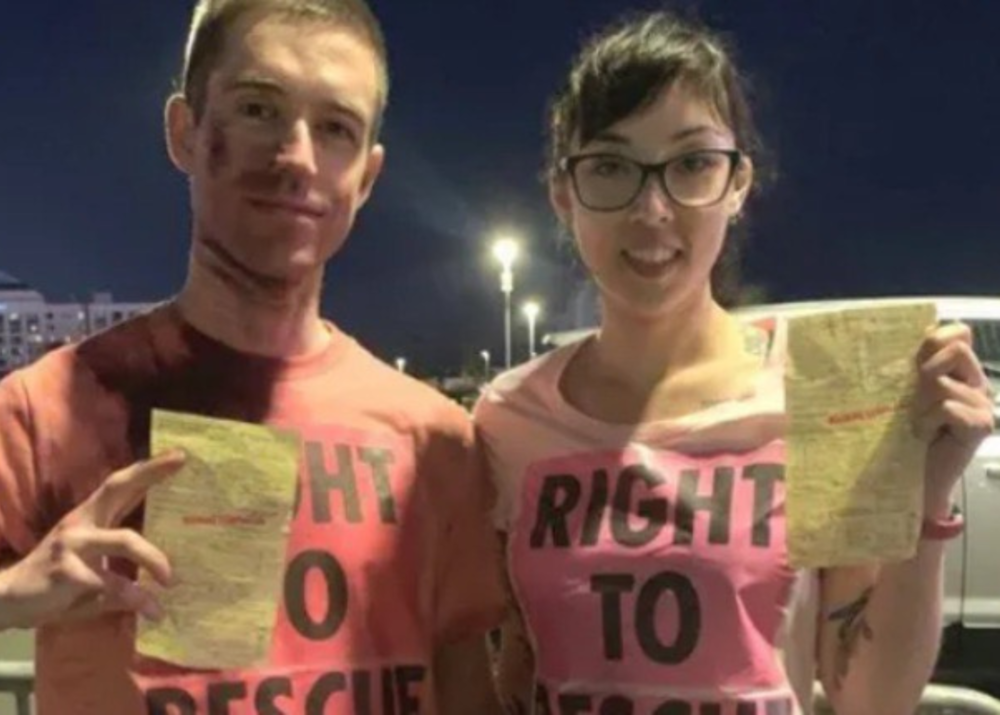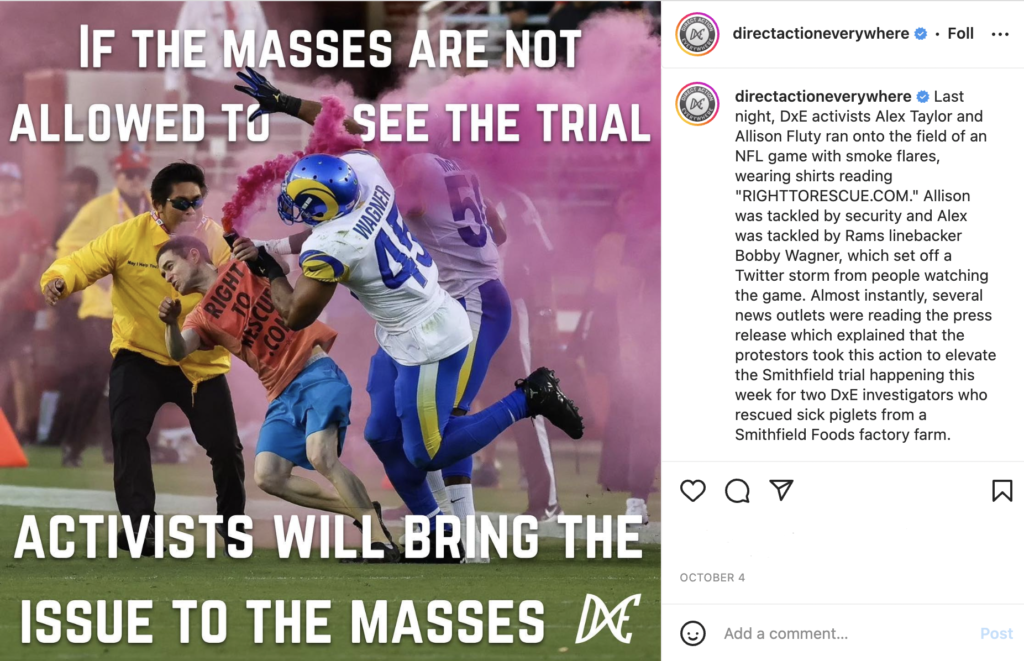
by Alex Taylor
Content warning for mentions of homophobic instances
As a gay person interested in social justice, offensive headlines in articles from the recent past catch my attention. One discussing the 1969 Stonewall uprising read: “Queen Bees are Stinging Mad.” The language in the papers during those early days was about as bigoted as you can get, ranging from “The Great [F-Slur] Rebellion” to “Militant Homosexuals Seeking Civil Rights.” Sadly, smears like these aren’t surprising.
When the dominant culture wants to squash the voices of those seeking change, these are the tactics it uses—disparagement, slurs, insults, and even fear. We’ve seen this in recent months with the conservative rallying cry: “Groomers!” And the most frustrating thing about press coverage of those struggling to fight back against the oppressors’ narrative is that the media simply won’t cover certain conversations unless it becomes a viral talking point. Whether it’s gay rights, environmental issues, animal rights, Black Lives Matter, or anti-fascism, journalists will “two-sides” the issue to death and then turn it into a crude discourse of snappy headlines and slick one-liners instead of active, meaningful discussions on how to make our society better.
What does this have to do with righttorescue.com – the reason I ran onto the field that evening?
When the opportunity arose to take subversive, legally risky action in order to reach millions of viewers and shine the spotlight on a neglected issue so dear to my heart, I couldn’t say ‘No.’
Earlier last month, my two friends and fellow activists, Wayne Hsiung and Paul Picklesimer, were facing ten years in prison for rescuing two baby piglets from a factory farm owned by a multi-billion-dollar corporation, Smithfield Foods, which is owned by a publicly-traded Chinese corporation. Normally, a case where the “stolen goods” are worth less than $100 wouldn’t warrant an FBI investigation, nor would it provoke state prosecutors to issue such severe charges. But the Smithfield trial was about more than two nearly-dead and soon-to-be discarded piglets, which the company claimed were worth $42 each. It was about freedom of speech, the public’s right to investigate where our food comes from, and the influence a major multinational corporation can have over our criminal justice system. This was a huge, important story—not just about animal rights—and major media was largely silent on it.
So, I ran onto the field with a www.righttorescue.com T-shirt and a can of pink smoke; then, I got tackled by Bobby Wagner.
Within minutes, the video clip was on CNN.com. That evening, over 50,000 people were tweeting about it. The next day, dozens of media outlets streamed video and photos of me getting tackled with my Right to Rescue shirt prominently displayed.
I hate that in order for important stories to get covered, we have to do it this way. But here we are.
The history of public disruption to bring awareness to a cause goes back centuries. And history shows that sustained, disruptive protests work. In 1381, despite the violence and suppression that followed, the Peasants’ Revolt ultimately led to reforms resulting in the eradication of serfdom in England by the 15th century. In 1913, suffragette Emily Wilding threw herself in the path of a racehorse at Epsom Derby to bring attention to women’s rights. And during the same week I ran onto the football field, hundreds of @Just.StopOil supporters blocked Waterloo Bridge.
I am very happy to report that the Utah jury in the Smithfield case found Wayne and Paul “Not Guilty” on all charges. This ushers in a new era in the fight against these types of corporations that want to silence whistleblowers and influence everything from state and national legislation to individual rights against unjust persecution.
But I’d like to encourage the public to question their instincts to demean and disparage those who are using whatever tools they have to fight back against the limitless resources of the corporations who control the narrative. The next time you see someone chain themself to a basketball hoop, run onto the stage during a political candidate’s speech or protest outside of a lawmaker’s home, know that these are all nonviolent tactics we can and should use to amplify the issues that the media isn’t covering. History shows us social change happens when ordinary citizens take risks for a cause. The annoyance of fans and the bruising and lampooning I endured are minor compared to the suffering of the billions of animals whose lives have been reduced to units of production.



Awesome! Inspiring! Thank you for all you’ve done!
Thanks so much for publishing this piece about the importance of activism! I hope more outlets will highlight the brave and selfless work of activists fighting for social change.
Incredible! There is so much truth in this. In fact, the only way to make change is to make sure people know what is going on and the only way to do that these days seems to be huge disruptions. Change is coming whether you like it or not and we will continue to challenge the system in every way we can.
Inspiring! You should be very proud of the work you do!
Excellent article, thank you for sharing your reason for such a bold action. There is a great urgency to create substantive change and we need brave activists who put the lives of the animals above their own personal freedom.
This has had so much impact, in so many ways! It certainly helped to undermine Smithfield Foods, Sean Reyes, State of Utah, and Beaver County in their hot pursuit to silence whistleblowers and freedom of speech Your brave actions also made numerous NFL’ers think twice about the sentience of farm animals and our duty to protect them.